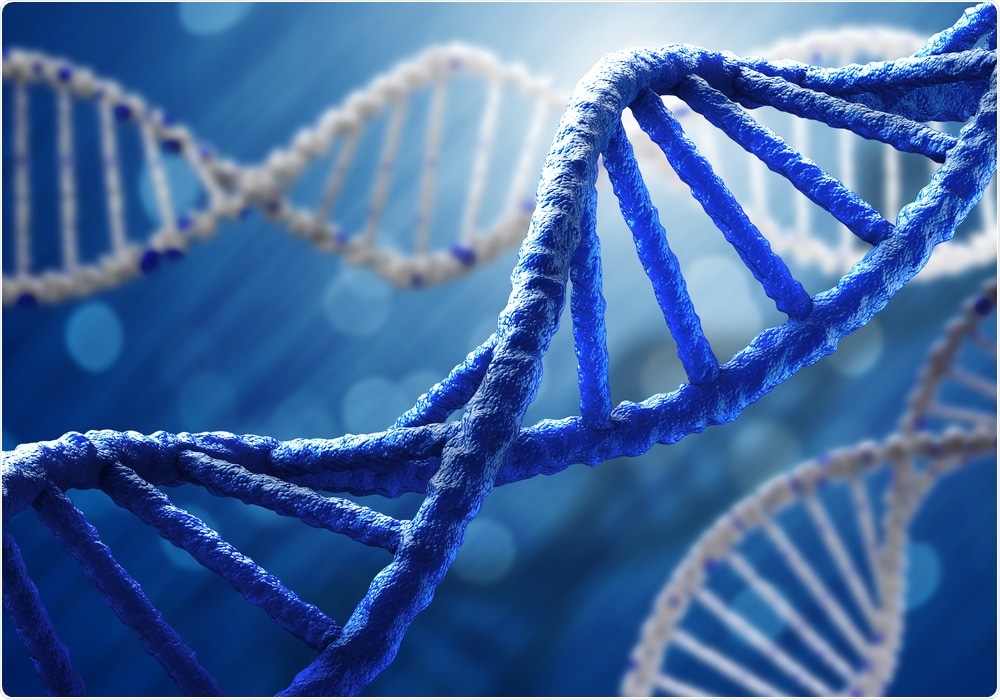A study involving over 2 million people from five countries has been published in the journal JAMA Psychiatry, which aimed to identify genetic, maternal, and environmental factors that increase the risk of Autism Spectrum Disorder (ASD).
The study found that approximately 80 percent of a person’s risk of developing autism stems from inherited genetic factors. This is in direct contrast to the many claims that environmental factors lead to autism.
 ESB Professional | Shutterstock
ESB Professional | Shutterstock
The study, which the authors believe is the largest of its kind, included 2,001,631 people, out of whom 22,156 were diagnosed with autism spectrum disorder during the study duration.
Cohorts were included from Denmark, Finland, Sweden, Israel, and Western Australia. The analysis stretched from 1998 to 2011, with researchers following participants until they turned 16.
There are a multitude of claims that environmental factors such as air pollution and chemical exposure contribute to the risk of autism, and controversial studies “proving” that autism is caused by certain vaccines.
However, the latest study states that “the heritability of ASD was estimated to be approximately 80 percent, indicating that the variation in ASD occurrence in the population is mostly owing to inherited genetic influences.”
The study also cites there is “no support” for the contribution of maternal effects, which refers to the association of maternal phenotypes with autism in children.
However, it is important to note that autism is still believed to stem from several concurrent factors, which may be a blend of inherited factors and environmental factors (excluding vaccines). The specific genes responsible for causing autism spectrum disorder have also not been individually identified.
The authors write:
The current study results provide the strongest evidence to our knowledge to date that the majority of risk for ASD is from genetic factors. Nonshared environmental factors also consistently contribute to risk.
In the models that combined data from the 3 Nordic countries, the genetic factors explained at least 73.9 percent of the variability in risk, and nonshared environment at most 26.5 percent.”
Advancing our understanding of autism
Autism is a neurodevelopmental disorder characterized by difficulties with social interaction and communication, with those living with the condition often having restrictive interests, hobbies, and repetitive behaviors.
Although autism can negatively interfere with many areas of a person’s life, those with the disorder can be highly intelligent, have an excellent memory, and be passionate about particular subjects, of which they have extensive and thorough knowledge, helping them to become experts in their chosen fields.
“Although families are often most concerned about environmental risk factors for autism, the reality is that genetic factors play a much larger role overall,” said Dr. Andrew Adesman, the director of developmental and behavioral pediatrics at Cohen Children’s Medical Center in New Hyde Park.
While he was not involved in the study, Adesman spoke to Health Day and added that environmental factors do play a smaller but still important role in the development of autism. He urges that the environmental factors contributing to the development of autism and their interactions with genetic risk factors should not be ignored.
Author of the study Sven Sandin, a statistician and epidemiologist with the Karolinska Institutet in Sweden spoke on the results generated by his study to HuffPost: “Everywhere we looked, in five different samples, what we saw was that genetic factors were most important.”
Dr. Wendy Sue Swanson, a pediatrician with Seattle Children’s who did not work on the study, told HuffPost:
“If I were going to walk away after reading this study and talk to a family […] I’d say, ‘OK, we still don’t know the other 20 percent. It’s fairly controversial, what makes up the modifiable part,’” Swanson said.
“Where we’ve gone awry is pointing fingers at things that don’t cause autism,” Swanson said. “Look at where we are right now with measles, mumps, and rubella vaccine trust and look at where we are with outbreaks because there was erroneous, falsified, misinformation that for decades led parents to believe vaccines were causing autism spectrum disorders.”
Sandin noted that this study is not conclusive, and there is more work and research into the causes of ASD that needs to be carried out. He said:
We still do not know which specific genes contribute to risk. Also, there are numerous potential environmental factors that could be related to ASD either directly or acting together with genes. We have, so far, only been scratching the surface.”
Dr. Sven Sandin, Senior Author
Journal reference:
Bai, D., et al. (2019). Association of Genetic and Environmental Factors With Autism in a 5-Country Cohort. JAMA Psychiatry. https://jamanetwork.com/journals/jamapsychiatry/article-abstract/2737582